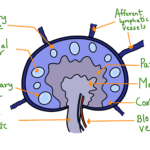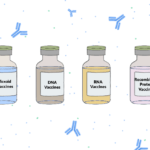Polymerase Chain Reaction (PCR) is a technique used to amplify the DNA fragment of interest. From discovering the PCR, PCR has been a great tool in molecular biology with a wide range of applications in various fields. Many variants of the technique have been developed over the course of time. One such variant is Nested PCR (nPCR). Nested PCR is used to confirm the integrity of the specific amplicon in the PCR.
Nested PCR increases the specificity along with the sensitivity of the process of DNA amplification. Nested PCR consists of two consecutive PCR reactions. Each PCR reaction usually consists of 30 amplification cycles. The first PCR reaction is a usual PCR reaction with template DNA and a set of forward and reverse primers. For the sake of differentiation from the second set of primers, the primers are called external primers. The second PCR reaction is carried using a different set of primers known as nested primers. The nested primers are designed in such a way that they bind to the internal region of the amplicon produced from the first PCR reaction. In simple words, the first PCR reaction amplicon product is used as a template for the second PCR. Nested PCR is used to confirm the specificity of the first PCR product and its ability to serve as a template for the following PCR.

Nested PCR works on the logic that even though a wrong template is amplified by mistake in the first PCR, the presence of second PCR reduces the probability that nested primers would further amplify the same wrong amplicon.
In order to increase the sensitivity of the nested PCR (nPCR), another variant of this technique known as ‘hot nPCR’ can be used. In the hot nPCR, one of the nested primers is radio-labelled in order to monitor the amplification. The amplicons are validated using gel electrophoresis, where first and second PCR products can be differentiated based on the amplicon length difference. Further validation can be done by going for sequencing of the product.
‘Pit stop’ PCR is a new variation of the nested PCR technique in which the first PCR is halted after about ten cycles, and the second PCR is then carried out. The purpose of the ‘Pit stop’ variation in nested PCR is to generate enough templates for the second PCR reaction through the first PCR reaction.



